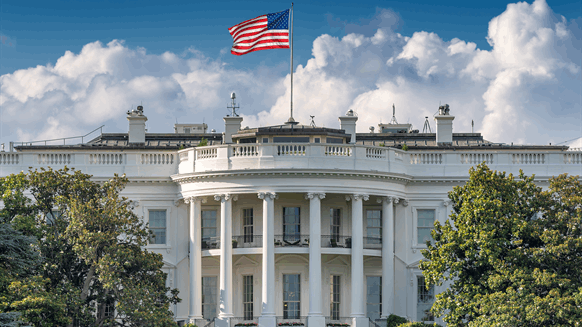
Trinidad and Tobago won support from US Secretary of State Marco Rubio to resume talks with the sanctioned government of Venezuela to develop gas projects.
After meeting with Rubio, Trinidad and Tobago Prime Minister Kamla Persad-Bissessar said in a statement she’d obtained US support “for the development of this country’s hydrocarbon cross border resources.” Rubio told Persad-Bissessar that her country would need to ensure Venezuelan President Nicolas Maduro’s regime wouldn’t benefit from the relationship, according to a State Department statement.
The two countries and Shell Plc had planned for years to develop a pipeline to export natural gas from Venezuela’s Dragon offshore field to Trinidad. As originally envisioned, the West Indies nation would be able to use the gas for its petrochemical industry or process it as LNG for export to the international markets.
Rubio’s statement specifically mentioned Trinidad’s “Dragon gas proposal,” while Persad-Bissessar’s didn’t.
The US has accused Maduro’s government of involvement in the narcotics trade and has positioned Navy ships in Caribbean waters, bombing three boats from Venezuela that it alleges were transporting drugs. The tensions have made it all the more difficult for companies seeking to do business in Venezuela to get exemptions to US sanctions.
Trinidad, once a pioneer in liquefied natural gas, is in a desperate search to find partners to tap new reserves in the Caribbean as output from its aging fields dwindle. Persad-Bissessar, a former prime minister who returned to power in a landslide victory in April, has positioned herself as staunch ally of the US, praising the boat bombings. “I have no sympathy for traffickers – the US military should kill them all violently,” she said earlier this month.
Venezuelan and Shell officials had been pushing to ready gas exports to Trinidad by 2026 after receiving a waiver from the US in 2022 to allow work on the Dragon project. But the US revoked that license in April, two weeks ahead of Persad-Bissessar’s inauguration.
Persad-Bissessar had said during the campaign that she opposed reopening talks with Venezuela for the Dragon pipeline. Trinidad’s energy chamber and Shell, a partner in the project, have worked to persuade her to back it, according to a person familiar with the matter.
In addition to Shell, BP Plc and Chevron Corp. are among international companies tied to undeveloped offshore gas between Venezuela and Trinidad.
The energy chamber lauded Persad-Bissessar in a statement, saying that the US plans to issue new licenses through the Treasury Department’s Office of Foreign Assets Control.
The licenses are expected to be similar to those issued to Chevron for oil drilling in Venezuela, said the person familiar with the matter, asking not to be identified discussing private information. The Chevron deal allows for Venezuela’s state energy company to be compensated in-kind with a share of the production, rather than with cash.
Source: Bloomberg News
